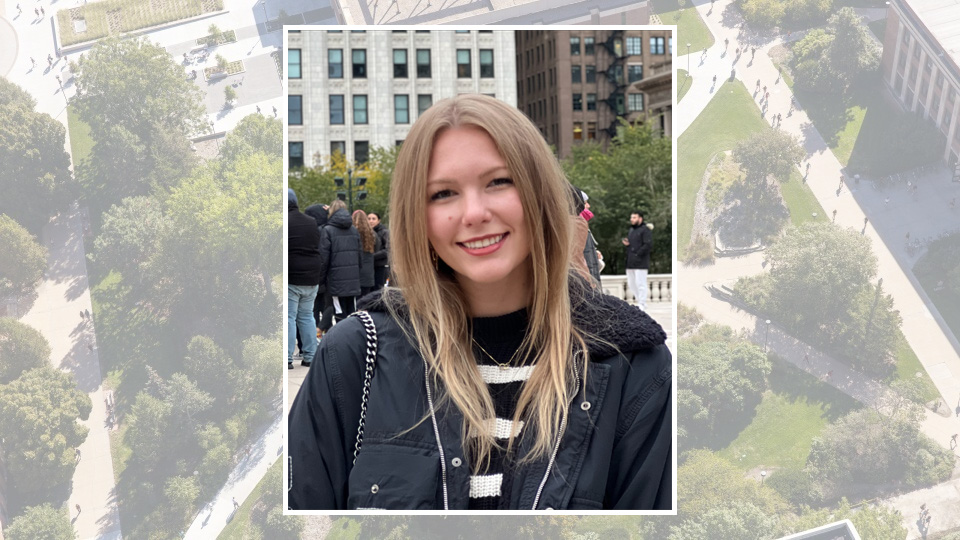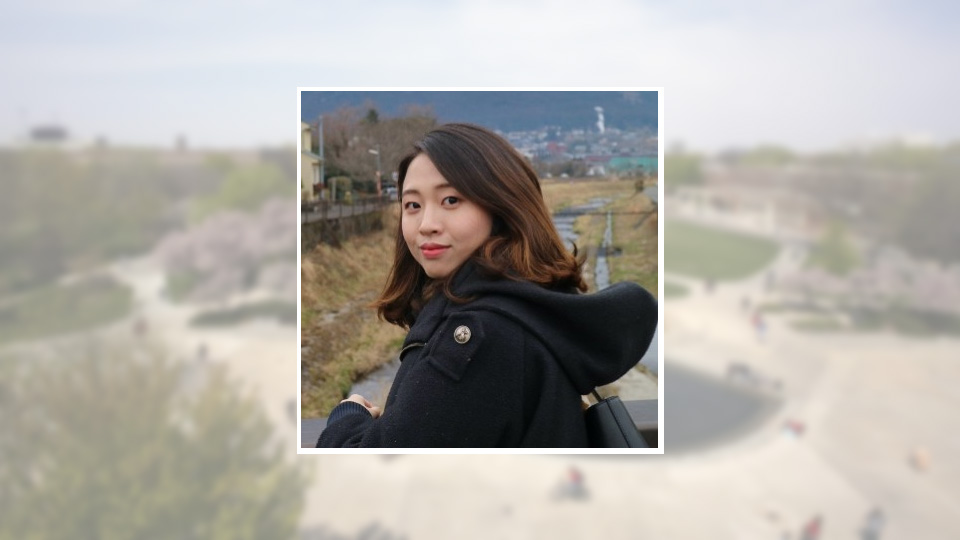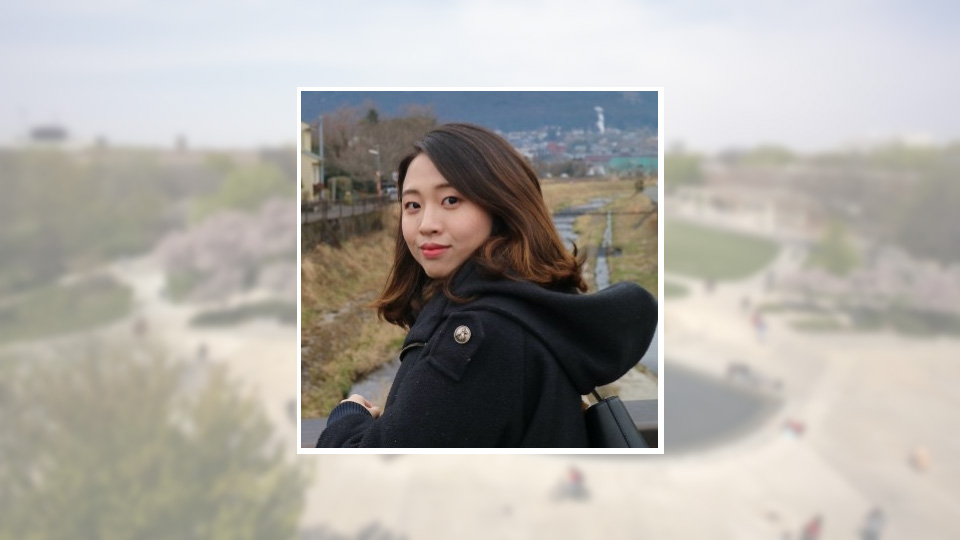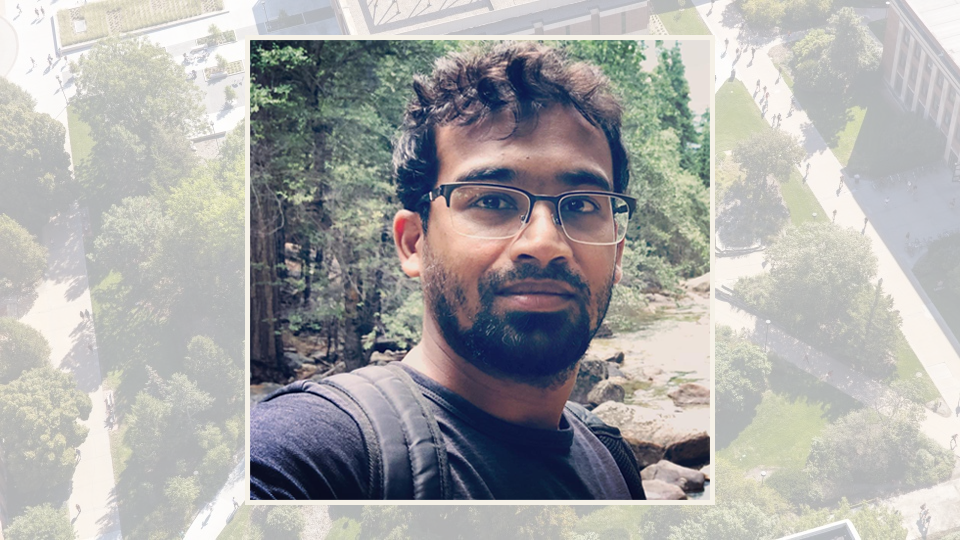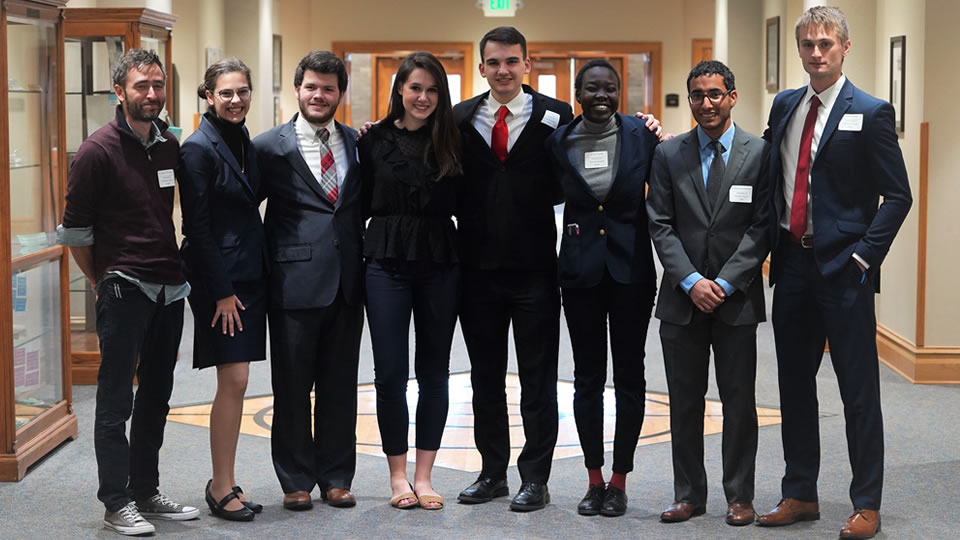
The new UNL Ethics Bowl Team performed beyond all expectations tying for 2nd Place in their first Rocky Mountain Regional Ethics Bowl.
As Assistant Director of the Kutak Ethics Center, coaching the team is just one of Adam R. Thompson's center-related responsibilities. He also holds a lecturer position in the Department of Philosophy. Not surprisingly, he found a lot of ethic's bowl talent in his PHIL 101: Introduction to Philosophy and PHIL 320: Ethical Theory courses. Team members recruited the rest. The main qualities to looks for when recruiting are (a) sharp intellect, (b) interrogative and contrarian dispositions, (c) deep and abiding interest in exploring and analyzing complex situations and concepts, and (d) epistemic humility. Basically, the idea is to recruit those with with exceptional philosophical acumen.
UNL Ethics Bowl Team
- Mohammed Al Badaai, accounting (philosophy minor)
- Tyler Beck, philosophy and sociology
- Matt Cooke, history and philosophy
- Nyadet Dojiok, global studies
- Liam Hay, philosophy and psychology
- Katie Kost, history, philosophy, political science (business, criminology/criminal justice, national security studies minors)
- Emily Marvin, philosophy
- Anton Skretta, philosophy and psychology (economics minor)
Thus, the team's high potential to do well going into the competition was indubitable to Thompson. But, the main concern was whether they would be able to capitalize on that potential in an intimidating and new context.
The concern makes sense. Ethics bowl competitions push participants to accelerate their research and reasoning abilities while honing their skills at public speaking and community reasoning. Ethics bowl teams across the nation receive a set of fifteen cases in September every year. Each case details an ethically complex situation. Teams work to understand every aspect of each case in order to build critical frameworks that point toward a case-related verdicts.
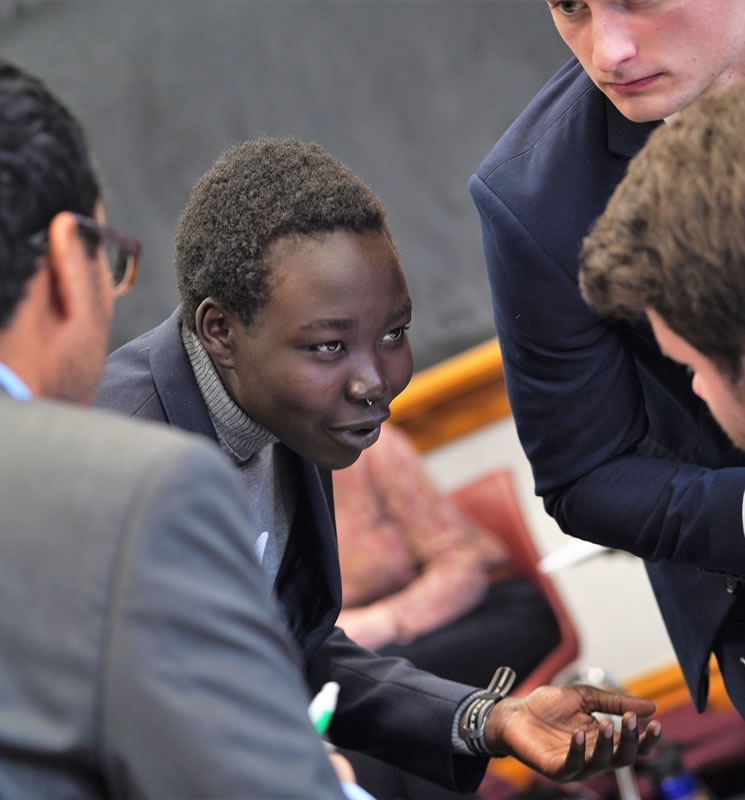
For instance, a case may delineate a situation in which one community's morally appropriate interests are at odds with that of another. This year, for example, one case was about a policy outlawing Kosher and Halal slaughter proposed in an European country where the number of people who adhere to Kosher or Halal diets is increasing due primarily to immigration. Another was about the #metoo movement and whether it 'had gone too far'. Another focused on voting rights for felons. Still another discussed the Evergreen College's, 'Day of Absence' and a professor's protest against a 2017 version of it that called on all white people at the college to attend workshops on diversity and inclusion as opposed to teaching or attending class.
Competition is typically composed of five, two-match rounds. Each match involves a structured discussion of a question connected to one of the fifteen competition cases. The question is unknown prior to the match and can be about (a) a particular aspect of the case (e.g., Should Belgium adopt the policy?) or (b) a more general issue (Is it morally permissible to eat the flesh of non-human animals?).
The presenting team in a match has only two minutes to use the critical framework they developed over the season to outline an answer to the question. They present their answer (10 mins.), defend it against the other team's critique (5 mins.), and field questions from a panel of three judges (10 mins.). Typically, judges are professionals from different walks of life (e.g., academics, lawyers, business owners, real-estate agents, etc.). The goal is to convince them that you have given a richer, clearer, and more complete answer than the other team. Needless to say just managing to keep one's head above water during competition is a tall order.
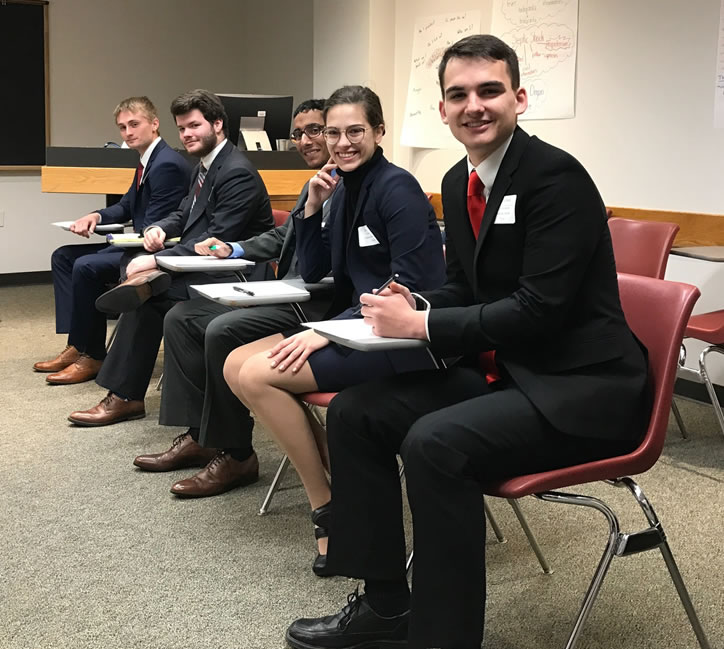
Needless to say just managing to keep one's head above water during competition is a tall order. The UNL Ethics Bowl Team rose to the challenge. To do so they held one two-hour official practice each week in which their coach, Thompson helps them workshop critical frameworks and explore the depths of the cases. In addition the team organized approximately two or three three-hour meetings each week. It was impressive to see these students work. Mock competitions judged by philosophy professors and others in and outside the university. For many years now, associate professors of philosophy Aaron Bronfman and Reina Hayaki have helped UNL Ethics Bowl Teams succeed (while no doubt striking a healthy amount of fear in the minds of the team's majors) by sitting as judges in these mock trials.
Of course, former teams have done similar things. However, each had at least one or two ethics bowl veterans on their roster. This 2018 team had zero veterans. Moreover, only two had competed in this way before as members of their respective high school debate teams.
By the end of competition, the team could not stop smiling. The team did not earn a bid to national competition. Still, their hard work significantly impacted their philosophical and public reasoning skills and earned them a moment of pride that they can carry far beyond this season and their college careers.
For now the team will return to their studies. Spring Semester will be reserved for recruiting new members and further developing their skills under more relaxed conditions.
If you think you've got what it takes to represent the University of Nebraska as a member of the UNL Ethics Bowl Team or know someone who does, please, don't hesitate to contact Adam Thompson (art@unl.edu) or visit the team's webpage to find out more and sign up for tryouts. Like Lincoln, Nebraska, and the world, we can always use more Husker excellence.
Ethics Bowl Sponsors: College of Law, Department of Philsophy, and the Jan Eric Pusch Charitable Foundation.
